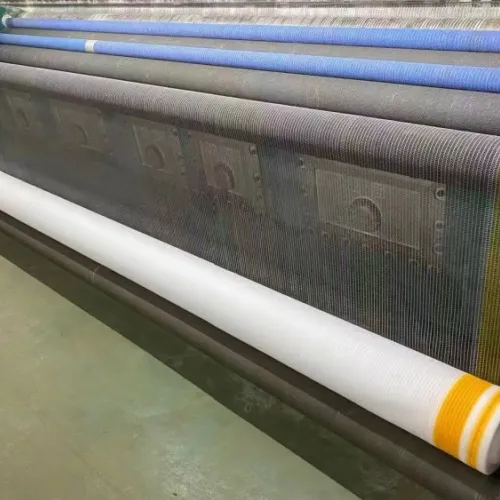-
 Afrikaans
Afrikaans -
 Albanian
Albanian -
 Amharic
Amharic -
 Arabic
Arabic -
 Armenian
Armenian -
 Azerbaijani
Azerbaijani -
 Basque
Basque -
 Belarusian
Belarusian -
 Bengali
Bengali -
 Bosnian
Bosnian -
 Bulgarian
Bulgarian -
 Catalan
Catalan -
 Cebuano
Cebuano -
 China
China -
 Corsican
Corsican -
 Croatian
Croatian -
 Czech
Czech -
 Danish
Danish -
 Dutch
Dutch -
 English
English -
 Esperanto
Esperanto -
 Estonian
Estonian -
 Finnish
Finnish -
 French
French -
 Frisian
Frisian -
 Galician
Galician -
 Georgian
Georgian -
 German
German -
 Greek
Greek -
 Gujarati
Gujarati -
 Haitian Creole
Haitian Creole -
 hausa
hausa -
 hawaiian
hawaiian -
 Hebrew
Hebrew -
 Hindi
Hindi -
 Miao
Miao -
 Hungarian
Hungarian -
 Icelandic
Icelandic -
 igbo
igbo -
 Indonesian
Indonesian -
 irish
irish -
 Italian
Italian -
 Japanese
Japanese -
 Javanese
Javanese -
 Kannada
Kannada -
 kazakh
kazakh -
 Khmer
Khmer -
 Rwandese
Rwandese -
 Korean
Korean -
 Kurdish
Kurdish -
 Kyrgyz
Kyrgyz -
 Lao
Lao -
 Latin
Latin -
 Latvian
Latvian -
 Lithuanian
Lithuanian -
 Luxembourgish
Luxembourgish -
 Macedonian
Macedonian -
 Malgashi
Malgashi -
 Malay
Malay -
 Malayalam
Malayalam -
 Maltese
Maltese -
 Maori
Maori -
 Marathi
Marathi -
 Mongolian
Mongolian -
 Myanmar
Myanmar -
 Nepali
Nepali -
 Norwegian
Norwegian -
 Norwegian
Norwegian -
 Occitan
Occitan -
 Pashto
Pashto -
 Persian
Persian -
 Polish
Polish -
 Portuguese
Portuguese -
 Punjabi
Punjabi -
 Romanian
Romanian -
 Russian
Russian -
 Samoan
Samoan -
 Scottish Gaelic
Scottish Gaelic -
 Serbian
Serbian -
 Sesotho
Sesotho -
 Shona
Shona -
 Sindhi
Sindhi -
 Sinhala
Sinhala -
 Slovak
Slovak -
 Slovenian
Slovenian -
 Somali
Somali -
 Spanish
Spanish -
 Sundanese
Sundanese -
 Swahili
Swahili -
 Swedish
Swedish -
 Tagalog
Tagalog -
 Tajik
Tajik -
 Tamil
Tamil -
 Tatar
Tatar -
 Telugu
Telugu -
 Thai
Thai -
 Turkish
Turkish -
 Turkmen
Turkmen -
 Ukrainian
Ukrainian -
 Urdu
Urdu -
 Uighur
Uighur -
 Uzbek
Uzbek -
 Vietnamese
Vietnamese -
 Welsh
Welsh -
 Bantu
Bantu -
 Yiddish
Yiddish -
 Yoruba
Yoruba -
 Zulu
Zulu
bee proof mesh
The Benefits and Applications of Bee-Proof Mesh
In the world of gardening and beekeeping, advancements in materials have brought forth innovative solutions to some of the most pressing challenges faced by enthusiasts and professionals alike. One such innovation is the bee-proof mesh, a versatile and essential item that protects both plants and bees. This article delves into the benefits and applications of bee-proof mesh, highlighting its significance in various fields.
Understanding Bee-Proof Mesh
Bee-proof mesh is a specialized type of mesh that prevents bees from entering certain areas while allowing air, light, and rain to pass through. Typically made from durable, weather-resistant materials, this mesh is designed to be both protective and functional, serving as a barrier that does not inhibit the natural growth cycle of plants or the activities of beneficial insects.
Protecting Pollinators and Plants
One of the primary applications of bee-proof mesh is in the protection of flowering plants, particularly those that are vulnerable to over-pollination or certain pests. For gardeners, ensuring a healthy balance of pollination is crucial, as too many bees can lead to poor fruit development or disease transmission among plants. By utilizing bee-proof mesh, gardeners can selectively allow some bees to access their plants while restricting others, thus promoting a healthier garden ecology.
Moreover, the use of bee-proof mesh helps in protecting plants from larger pests that might harm them. In scenarios where beekeepers wish to safeguard their colonies from invasive pest species, this mesh can act as a defense mechanism, allowing bees to thrive without external interference.
Sustainable Beekeeping Practices
bee proof mesh

In the realm of beekeeping, bee-proof mesh plays an instrumental role in promoting sustainable practices. Beekeepers are tasked with maintaining healthy colonies that can produce honey and pollinate crops. However, environmental factors, diseases, and predators can threaten these colonies. By using bee-proof mesh in hives and around apiaries, beekeepers can reduce the risk of infestations and protect their bees from dangers such as wasps and hornets, which can decimate a hive.
Another advantage of bee-proof mesh is its contribution to a more ethical approach to beekeeping. Unlike traditional barriers that may trap or harm other insects, bee-proof mesh allows for the movement of beneficial insects while keeping harmful ones at bay, thus maintaining biodiversity in the ecosystem.
Versatile Applications Beyond Beekeeping
The utility of bee-proof mesh is not limited to gardens and apiaries; it has a wide array of applications in various industries. Farmers utilize this mesh to create protective coverings for crops, ensuring that they receive adequate pollination while safeguarding against unwanted insects. In urban environments, bee-proof mesh can be employed in community gardens, where diverse plant species flourish amidst bustling populations.
In addition, bee-proof mesh has also found a place in research settings. Scientists studying pollination dynamics can use this mesh to create controlled environments, allowing for the observation of bee behaviors and interactions without external influences. This can provide valuable insights into how to better manage both natural and cultivated ecosystems.
Conclusion
In conclusion, bee-proof mesh is a remarkable innovation that offers multiple benefits for gardeners, beekeepers, farmers, and researchers alike. By creating a barrier that allows essential interaction between plants and bees while providing protection from pests, this versatile material plays a crucial role in promoting healthier ecosystems. As we continue to recognize the importance of bees in our world, adopting such sustainable practices becomes imperative to ensure their survival and prosperity. Whether you are a seasoned beekeeper or a casual gardener, incorporating bee-proof mesh into your practices can undoubtedly lead to a more productive and harmonious environment.
-
Shipping Plastic Bags for Every NeedNewsJul.24,2025
-
Safety Netting: Your Shield in ConstructionNewsJul.24,2025
-
Plastic Mesh Netting for Everyday UseNewsJul.24,2025
-
Nylon Netting for Every UseNewsJul.24,2025
-
Mesh Breeder Box for Fish TanksNewsJul.24,2025
-
Expanded Steel Mesh Offers Durable VersatilityNewsJul.24,2025











